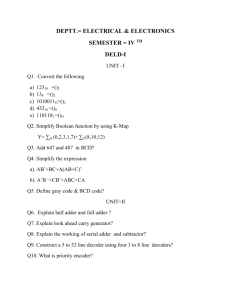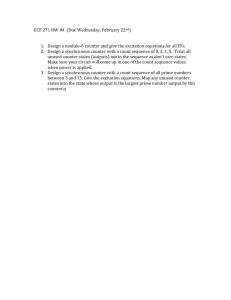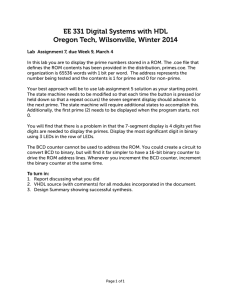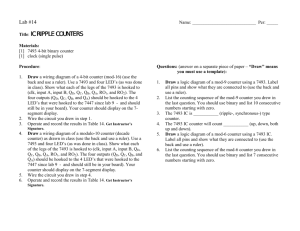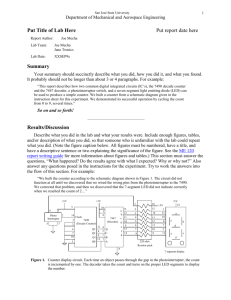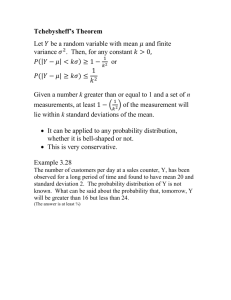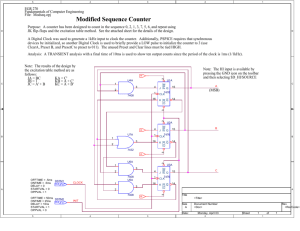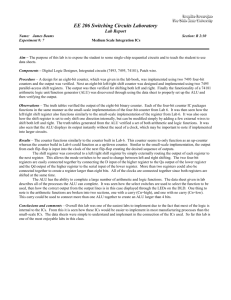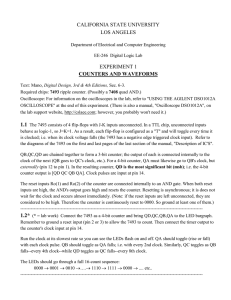Name________________________ Lab Partner MOD
advertisement
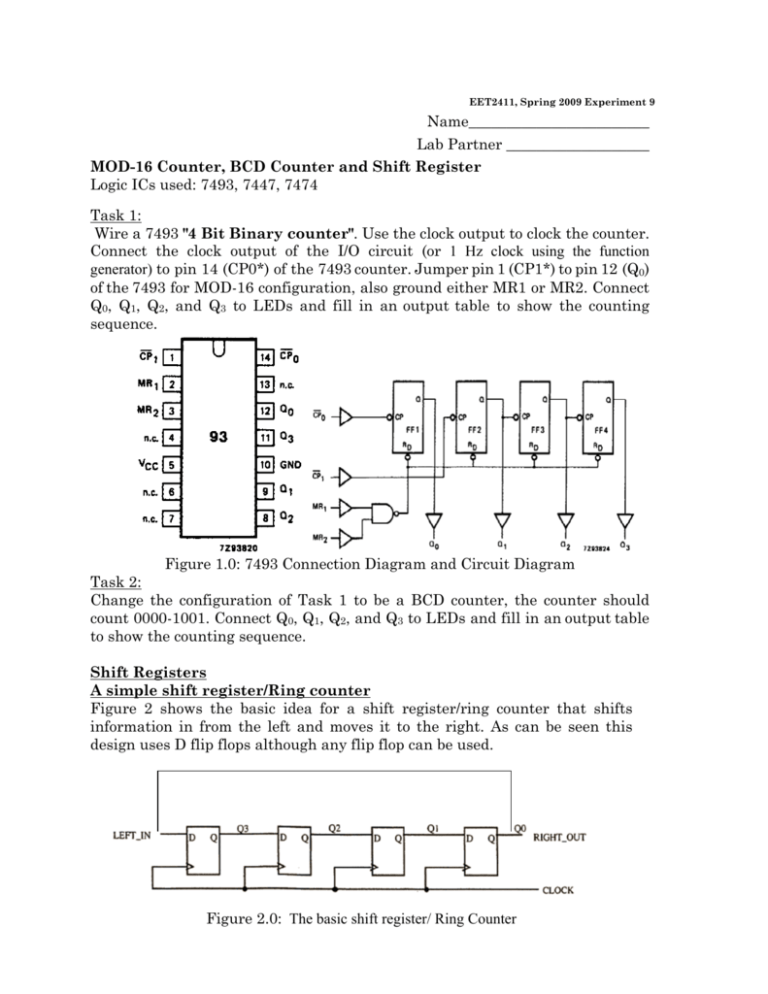
EET2411, Spring 2009 Experiment 9 Name________________________ Lab Partner ___________________ MOD-16 Counter, BCD Counter and Shift Register Logic ICs used: 7493, 7447, 7474 Task 1: Wire a 7493 "4 Bit Binary counter". Use the clock output to clock the counter. Connect the clock output of the I/O circuit (or 1 Hz clock using the function generator) to pin 14 (CP0*) of the 7493 counter. Jumper pin 1 (CP1*) to pin 12 (Q0) of the 7493 for MOD-16 configuration, also ground either MR1 or MR2. Connect Q0, Q1, Q2, and Q3 to LEDs and fill in an output table to show the counting sequence. Figure 1.0: 7493 Connection Diagram and Circuit Diagram Task 2: Change the configuration of Task 1 to be a BCD counter, the counter should count 0000-1001. Connect Q0, Q1, Q2, and Q3 to LEDs and fill in an output table to show the counting sequence. Shift Registers A simple shift register/Ring counter Figure 2 shows the basic idea for a shift register/ring counter that shifts information in from the left and moves it to the right. As can be seen this design uses D flip flops although any flip flop can be used. Figure 2.0: The basic shift register/ Ring Counter Task 3: Using the basic design of figure 2, design and Implement a four bit shift register that shifts from right to left using 7474, D flip flops. Connect the outputs, Q<3:0> to LEDs so that you can observe them. In your design make sure that you can set and reset the shift register, i.e. set it to 1111 and reset it to 0000. Do this using the asynchronous PRESET* and CLR* inputs of flip flop. Verify your design by Presetting and clearing your 4 FFs to Initial state 1000, then apply your clock and observe the outputs as the bits are shifted to the left and rotate back. EET 2411 Lab # Group Members Comments about this Lab Next Page to end of document: Index: Introduction: Talk about the whole lab Talk about specific components that you use Task 9.x: Talk about this task Its relation to the previous lab experiments/ the whole lab Calculations involved Problems encountered and resolution Circuit diagram
